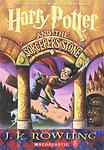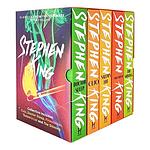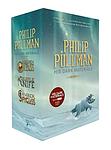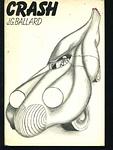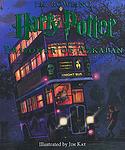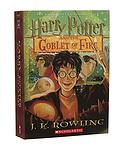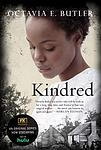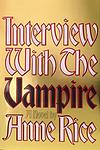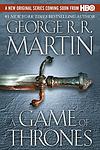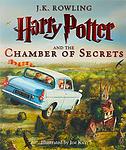The Greatest "Fiction, Speculative Fiction" Books Since 1970
Click to learn how this list is calculated.
This list represents a comprehensive and trusted collection of the greatest books. Developed through a specialized algorithm, it brings together 284 'best of' book lists to form a definitive guide to the world's most acclaimed books. For those interested in how these books are chosen, additional details can be found on the rankings page.
Genres
Speculative fiction is an umbrella genre encompassing narrative fiction with supernatural or futuristic elements. This includes genres such as science fiction, fantasy, horror, supernatural fiction, superhero fiction, utopian and dystopian fiction, apocalyptic and post-apocalyptic fiction, and alternate history. The unifying factor of speculative fiction is its departure from the narrative constraints of reality, exploring imaginative and often profound questions that challenge our understanding of the world and our place within it. These stories often delve into themes like the human condition, social commentary, and the exploration of philosophical and ethical dilemmas through the lens of the fantastical or the yet-to-be-possible. By pushing the boundaries of the known, speculative fiction invites readers to consider the myriad possibilities of existence and the potential consequences of our actions in worlds that are, at once, vastly different from and eerily similar to our own.
Countries
Date Range
Reading Statistics
Click the button below to see how many of these books you've read!
Download
If you're interested in downloading this list as a CSV file for use in a spreadsheet application, you can easily do so by clicking the button below. Please note that to ensure a manageable file size and faster download, the CSV will include details for only the first 500 books.
Download-
1. Beloved by Toni Morrison
This novel tells the story of a former African-American slave woman who, after escaping to Ohio, is haunted by the ghost of her deceased daughter. The protagonist is forced to confront her repressed memories and the horrific realities of her past, including the desperate act she committed to protect her children from a life of slavery. The narrative is a poignant exploration of the physical, emotional, and psychological scars inflicted by the institution of slavery, and the struggle for identity and self-acceptance in its aftermath.
-
2. The Hitchhiker's Guide to the Galaxy by Douglas Adams
This comedic science fiction novel follows the intergalactic adventures of an unwitting human, Arthur Dent, who is rescued just before Earth's destruction by his friend Ford Prefect, a researcher for a galactic travel guide. Together, they hitch a ride on a stolen spaceship, encountering a range of bizarre characters, including a depressed robot and a two-headed ex-president of the galaxy. Through a series of satirical and absurd escapades, the book explores themes of existentialism, bureaucracy, and the absurdity of life, all while poking fun at the science fiction genre and offering witty commentary on the human condition.
-
3. The Handmaid's Tale by Margaret Atwood
Set in a dystopian future, this novel presents a society where women are stripped of their rights and are classified into various roles based on their fertility and societal status. The protagonist is a handmaid, a class of women used solely for their reproductive capabilities by the ruling class. The story is a chilling exploration of the extreme end of misogyny, where women are reduced to their biological functions, and a critique of religious fundamentalism.
-
4. Harry Potter And The Philosopher's Stone by J. K Rowling
The story follows a young boy, Harry Potter, who learns on his 11th birthday that he is the orphaned son of two powerful wizards and possesses unique magical powers of his own. He is summoned from his life as an unwanted child to become a student at Hogwarts, an English boarding school for wizards. There, he meets several friends who become his closest allies and help him discover the truth about his parents' mysterious deaths, the dark wizard who wants to kill him, and the magical stone that holds immense power.
-
5. Gravity's Rainbow by Thomas Pynchon
Set during the end of World War II, the novel follows Tyrone Slothrop, a lieutenant in the U.S. Army, as he tries to uncover the truth behind a mysterious device, the "Schwarzgerät", that the Germans are using in their V-2 rockets. The narrative is complex and multi-layered, filled with a vast array of characters and subplots, all connected by various themes such as paranoia, technology, and the destructive nature of war. The book is known for its encyclopedic nature and its challenging, postmodernist style.
-
6. The Shining by Stephen King
A recovering alcoholic accepts a job as a winter caretaker at a remote Colorado hotel, hoping the isolation will help him reconnect with his wife and young son, and work on his writing. However, the hotel has a dark history and a powerful malevolent presence that influences him into violence, while his psychic son sees horrific forebodings from both past and future. As the winter weather leaves them snowbound, the father's sanity deteriorates, leading to a terrifying climax.
-
7. Watership Down by Richard Adams
This novel follows a group of rabbits as they flee their warren due to a foreseen catastrophe. The rabbits, led by Hazel and his psychic brother Fiver, face numerous challenges and adventures as they search for a new home. They encounter predators, hostile rabbit communities, and human threats. The book explores themes of leadership, survival, and freedom, all set within the natural world and its inherent dangers.
-
8. The Stand by Stephen King
This post-apocalyptic horror/fantasy novel presents a world devastated by a deadly plague, killing 99% of the population. The survivors, drawn together by dreams of a charismatic and benevolent figure, gather in Boulder, Colorado to form a new society. However, a malevolent figure also emerges, attracting a following of his own and setting the stage for a classic battle between good and evil. The story delves into themes of community, morality, and the capacity for both destruction and regeneration within humanity.
-
9. Neuromancer by William Gibson
In this groundbreaking cyberpunk novel, a washed-up computer hacker is hired by a mysterious employer to pull off the ultimate hack. As he navigates a dystopian future filled with artificial intelligence, corporate espionage, and virtual reality, he must confront his own past and the dark realities of the digital world. The narrative explores themes of technology, identity, and consciousness, pushing the boundaries of science fiction literature.
-
10. The Road by Cormac McCarthy
In a post-apocalyptic world, a father and his young son journey through a desolate landscape, struggling to survive. They face numerous threats including starvation, extreme weather, and dangerous encounters with other survivors. The father, who is terminally ill, is driven by his love and concern for his son, and is determined to protect him at all costs. The story is a haunting exploration of the depths of human resilience, the power of love, and the instinct to survive against all odds.
-
11. His Dark Materials by Philip Pullman
"His Dark Materials" is a fantasy trilogy that follows the journey of a young girl named Lyra Belacqua and her daemon, Pantalaimon, across parallel universes. Throughout their adventures, they encounter a variety of mythical creatures, confront religious and political systems, and grapple with complex themes such as free will, original sin, and the nature of consciousness. The series also delves into the mysteries of Dust, a strange particle integral to the multiverse's function.
-
12. Nights At The Circus by Angela Carter
"Nights at the Circus" is a fantastical tale set in the late 19th century, centering around a trapeze artist who claims to be a swan princess with wings. A journalist is intrigued by her story and joins the circus to uncover the truth. As the troupe travels from London to Siberia, the journalist becomes increasingly enchanted by the strange world of circus performers and his relationship with the trapeze artist deepens. The book explores themes of love, freedom, and the blurred lines between reality and illusion.
-
13. American Psycho by Bret Easton Ellis
The novel is a disturbing and graphic exploration of the mind of a wealthy, young and handsome Wall Street investment banker who is also a psychopathic serial killer. He leads a double life, appearing to be a charming and sophisticated businessman by day, while indulging in horrific acts of violence and murder by night. The narrative provides a satirical critique of 1980s American consumer culture, vanity, and excess, while also delving into the dark underbelly of human nature.
-
14. Crash: A Novel by J. G. Ballard
The novel revolves around a man who becomes sexually aroused by staging and participating in real car-crashes, a fetish that spirals further out of control when he meets a like-minded woman. It explores the disturbing intersection of technology, sexuality, and violence, pushing the boundaries of social norms and challenging the reader's perception of reality.
-
15. Perfume by Patrick Suskind
Set in 18th-century France, this novel tells the story of Jean-Baptiste Grenouille, a man born with an extraordinary sense of smell but no personal scent of his own. He becomes an apprentice to a prominent perfumer and learns to create the world's most intoxicating perfumes. However, his obsession with capturing the perfect scent leads him down a dark path, as he begins to kill young women to extract their scent. The book is a chilling exploration of obsession, identity, and the power of scent.
-
16. Never Let Me Go by Kazuo Ishiguro
The novel is a haunting tale of three friends, who grow up together at a seemingly idyllic English boarding school. As they mature, they discover a dark secret about their school and the purpose of their existence, which is to become organ donors for the rest of society. The story is a profound exploration of what it means to be human, the morality of scientific innovation, and the heartbreaking reality of love and loss.
-
17. Harry Potter And The Prisoner Of Azkaban by J. K Rowling
In this third installment of the popular fantasy series, the protagonist enters his third year at a magical school, only to find out that a notorious prisoner has escaped from a supposedly inescapable prison and is believed to be after him. As the school year progresses, he learns more about his parents' history, uncovers secrets about his professor, and discovers a magical map. He also learns to summon a powerful defensive spell, confronts the escaped prisoner, and uncovers the truth about his parents' betrayal and death. The book ends with him saving an innocent life and learning a valuable lesson about the complexity of human nature and the importance of true friendship.
-
18. Cloud Atlas by David Mitchell
This novel is a unique blend of six different stories, each set in a different time and place, spanning from the 19th century South Pacific to a post-apocalyptic future. Each tale is written in a different style, reflecting the time and setting it represents, and they are all connected through shared themes and recurring motifs. The stories are nested within each other, with each interrupted by the next, only to be concluded in the second half of the book. The novel explores themes of predacity, civilization, reincarnation and the eternal recurrence of the same behaviors throughout history.
-
19. Watchmen by Alan Moore
Set in an alternate history where superheroes emerged in the 1940s and 1980s, the story follows a group of retired superheroes who are brought out of retirement after the murder of one of their own. As they investigate, they uncover a plot that could change the course of history and the balance of world power. The book explores complex themes such as the morality of power, the definition of heroism, and the value of human life.
-
20. Harry Potter and the Goblet of Fire by J. K Rowling
In this fourth installment of a popular fantasy series, a young wizard finds himself unexpectedly entered into a dangerous tournament between rival schools of magic. He must compete in a series of challenging tasks, including a deadly dragon chase and a terrifying underwater rescue mission. Meanwhile, he's dealing with regular teen issues like crushes, jealousy, and school dances. But as he unravels the mystery behind his selection for the tournament, he uncovers a dark plot that puts his life in danger and hints at the return of a powerful dark wizard.
-
21. Kindred by Octavia E. Butler
"Kindred" is a gripping and thought-provoking novel that follows the life of Dana, a young African American woman living in the 1970s. Suddenly, she finds herself inexplicably transported back in time to the early 19th century, where she becomes entangled in the lives of her ancestors, who are enslaved on a plantation. As Dana navigates the brutal realities of slavery, she grapples with her own identity, the complexities of race, and the enduring legacy of the past. With its powerful storytelling and exploration of the connections between past and present, "Kindred" is a profound examination of history, race, and the enduring resilience of the human spirit.
-
22. The Colour of Magic by Terry Pratchett
This book introduces readers to a flat, disc-shaped world balanced on the back of four elephants who stand on a giant turtle. The story follows an inept and cowardly wizard named Rincewind who is tasked with guiding a naive tourist through this chaotic and fantastical world filled with dragons, trolls, and magic. The narrative is a satirical take on fantasy genre clichés, with humorous and witty commentary throughout.
-
23. Interview with the Vampire by Anne Rice
The novel is a dark and atmospheric tale of a centuries-old vampire, Louis, who shares his life story with a young reporter. He recounts his transformation into a vampire by the charismatic and ruthless Lestat, their complex relationship, and their encounters with other supernatural beings. The narrative explores themes of immortality, loss, identity, and the human desire for love and companionship. The book is known for its rich detail and its philosophical and historical depth.
-
24. A Game of Thrones by George R. R. Martin
This epic fantasy novel is set in the Seven Kingdoms of Westeros, where 'summers span decades and winters can last a lifetime'. The story follows three main plot lines: the Stark family's struggle to control the North; the exiled Targaryen siblings' attempt to regain the throne; and the Night's Watch's fight against the supernatural beings beyond the Wall. As these stories intertwine, a game of power, politics, and survival unfolds, where you either win or you die.
-
25. Harry Potter And The Chamber Of Secrets by J. K Rowling
In this second installment of a magical series, a young wizard returns to his school of witchcraft and wizardry for his second year, only to find that a mysterious entity is petrifying his classmates. With the help of his friends, he uncovers the dark history of the school, including a secret chamber hidden within the castle. Inside this chamber lurks a creature controlled by a memory from the past, and the young wizard must face it to save his school.
Reading Statistics
Click the button below to see how many of these books you've read!
Download
If you're interested in downloading this list as a CSV file for use in a spreadsheet application, you can easily do so by clicking the button below. Please note that to ensure a manageable file size and faster download, the CSV will include details for only the first 500 books.
Download


